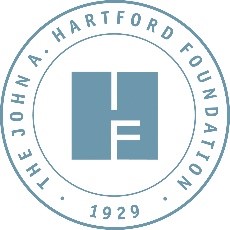February 24, 2016
Person-Centered Care Planning: Identifying Goals and Developing Care Plans

NCQA Blog
NCQA Blog – Improving health care quality.
Part 1: Do we agree on what matters most?
(NOTE: This is the first post in a three-part blog series evaluating person-centered care planning)
There are few things as satisfying as slipping into your favorite pair of shoes. The ones that fit perfectly—the ones that feel as if they were made just for you. A case study conducted by NCQA, with funding from The SCAN Foundation and the John A. Hartford Foundation, indicates the same thing holds true in health care. Health care works better when it fits your needs—as if it was tailored for you alone.
But the majority of the time, that isn’t the case. Health care services often focus on treating single diseases, even for people who suffer from multiple conditions. In some cases, treating one condition may make another worse. Often, a cure is not possible, and in lieu of a cure, preserving or improving quality of life—as defined by the individual—becomes a priority.
NCQA Wants to Know: What matters most to people with complex needs?
We looked at people who needed a combination of medical and behavioral health care, or who needed medical care and long-term services and supports, such as help with bathing or housekeeping. We reviewed care plans. We interviewed people about their goals.
We arranged the goals into four categories:
- Health and wellness.
- Service or care needed.
- Lifestyle.
- Independent living.
We found that what people told us is important related pretty well to what was documented in their care plan.
When we asked people about their priorities and goals, their answers focused most often on outcomes related to health and wellness, lifestyle and independent living—on quality of life. They want to lose weight and get more exercise. They want to continue their hobbies, go to church and travel. They want to live independently and remain in their own homes. Their goals were often personal, not “clinical.”
Disconnect Between Care Plans and a Persons’ Personal Goals
The goals documented in care plans commonly reflected necessary services or care; things like regular physician visits, medication management and patient education. The connection between the documented goals and the stated goals was sometimes obvious, but more often, it could only be explained by individuals or their care managers.
This uneasy connection leads to important questions for health care professionals, policy makers and quality measure developers: How well can providers meet a person’s needs if the care plan doesn’t fully document what matters most to the person? How can we do a better job of integrating personal goals into the care plan?
Although we can survive with poorly fitting shoes, most of us prefer to wear the pair that is most comfortable—the pair that fits just right. Shouldn’t we seek at least the same “fit” in our care plans?
Next Up: Part two of the three-part series on Person-Centered Goal Planning will discuss “Eliciting and Negotiating Goals.”
Read More:
Setting Goals with Vulnerable People: A Collaborative Approach
Goals to Care: How to keep the person in “person-centered”



Supported by grants from The SCAN Foundation and The John A. Hartford Foundation:
The SCAN Foundation—advancing a coordinated and easily navigated system of high-quality services for older adults that preserve dignity and independence. For more information, visit www.TheSCANFoundation.org.
The John A. Hartford Foundation, based in New York City, is a private, nonpartisan philanthropy dedicated to improving the care of older adults. For more information, please visit www.jhartfound.org.
Jessica Briefer French is a Senior Research Scientist at NCQA, with responsibility for leading large and complex grants and contracts. Ms. French has worked in health care quality for twenty years in both the private sector and on government contracts and private foundation grants. Over the last decade, her work has focused on measurement and evaluation of quality of care for vulnerable populations, adults with complex health care and long-term services and supports needs, including people dually eligible for Medicare and Medicaid, children with special health care needs, racial, ethnic and linguistic minorities and human research subjects. Ms. French is co-Principal Investigator of the current work updating accreditation standards for LTSS.
https://www.ncqa.org
Person-Centered Care Planning: Identifying Goals and Developing Care Plans
Jessica Briefer French

